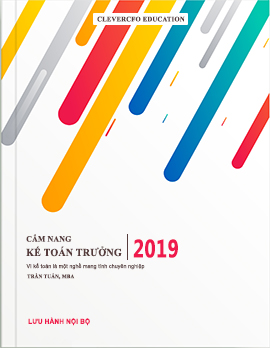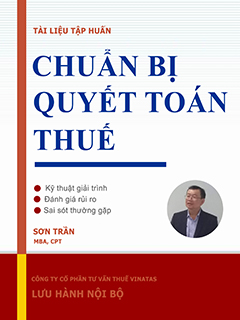Accounting Dictionary – 76 – UNI
TRUE AND FAIR VIEW is one of the most prominent principles of accounting. It suggests that an enterprise should provide a true and fair view about its financial conditions and operating results. The concept of true and fair view does not mean absolute truth about enterprises. Financial statements are a product of management's judgments and estimates. The principle of true and fair view requires comparative truth about the enterprises' picture. True and fair view is rather defined operationally; it is thought to be accomplished by complying with all other lower accounting principles.
TRUE VALUE is the amount that a buyer is finally willing to pay.
TRUST ACCOUNT is a separate bank account, segregated from a broker's own funds, in which the broker is required by state law to deposit all monies collected for clients; in some states called an ESCROW ACCOUNT.
TRUST DEED is an instrument of conveyance of title to property wherein the transferee will be holding the title to the property on behalf of another person.
TRUST FUND is a fiduciary relationship calling for a trustee to hold the title to assets, usually monetary, for the benefit of the beneficiary.
T/T is a payment or financial transaction designation meaning "Telegraphic Transfer" of funds.
TTM see Time To Market.
TURNOVER, in U.S. accounting, is the number of times an asset is replaced during a financial period; often used in terms of inventory turnover or accounts receivable turnover. In securities, for either a portfolio or exchange, TURNOVER is the number of shares traded for a period as a percentage of the total shares. In Great Britain, TURNOVER means sales.
TWO PARTY ENDORSEMENT, normally, is when two signatures are required to make a document or bank draft legal or authorized.
ULLAGE is the empty space present when a shipping container is not full.
UNALLOCATED COSTS represents corporate costs not associated either directly or indirectly in providing a product or service for sale. Unallocated costs are not included in the calculation of COST OF GOODS SOLD.
UNAUDITED OPINION is a qualified opinion by a Certified Public Accountant who has not audited the relevant financial statements.
UNBUDGETED are items and/or amounts that are currently not included within a budget.
UNCONTROLLABLE EXPENSE is expense that cannot be controlled or restrained. Some of the costs of doing business can not be postponed or spread out over a longer period of time (e.g., taxes, rent and utilities).
UNDERBUDGETED is a line item within a budget to where the budgeted amount is not sufficient to cover the actual amount.
UNDERLYING is the security, cash commodity, forward, futures contract, swap, or other contract or instrument that is the subject of a derivative contract or instrument.
UNDERRECORDED normally refers to an understatement as to what a total would be if all data was accurately included or considered; e.g. underrecorded costs, revenues, population, etc.
UNDERSTATED is to represent as less than is the case.
UNEXPIRED means not having come to an end or been terminated by the passage of time.
UNDISTRIBUTED EARNINGS see Retained Earnings.
UNEARNED REVENUE / INCOME represents money that you have received in advance of providing the goods or services to your customer. Unearned revenue is a liability of your business until you provide the goods or services you agreed to provide to the customer.
UNICAP see UNIFORM CAPITALIZATION RULES.
UNIFORM CAPITALIZATION RULES (UNICAP), in the U.S., is a method of valuing inventory for tax purposes that requires capitalization of direct costs, e.g. material and labor, and an allocable portion of indirect costs that benefit or are incurred because of production or resale activities. Certain expenses must be included in the basis of the property or in inventory costs rather than currently deducted. These costs are then recovered through depreciation or amortization or as cost of goods sold.
UNIT-CONTROL SYSTEM is an accounting system used in inventory management that tracks inventory using bin tickets and physical inventory checks.
UNIT COST see OBJECT COST.
UNIT-LEVEL ACTIVITY, in Activity Based Costing, is an activity that must be done for each unit of production.
TRUE AND FAIR VIEW is one of the most prominent principles of accounting. It suggests that an enterprise should provide a true and fair view about its financial conditions and operating results. The concept of true and fair view does not mean absolute truth about enterprises. Financial statements are a product of management's judgments and estimates. The principle of true and fair view requires comparative truth about the enterprises' picture. True and fair view is rather defined operationally; it is thought to be accomplished by complying with all other lower accounting principles.
TRUE VALUE is the amount that a buyer is finally willing to pay.
TRUST ACCOUNT is a separate bank account, segregated from a broker's own funds, in which the broker is required by state law to deposit all monies collected for clients; in some states called an ESCROW ACCOUNT.
TRUST DEED is an instrument of conveyance of title to property wherein the transferee will be holding the title to the property on behalf of another person.
TRUST FUND is a fiduciary relationship calling for a trustee to hold the title to assets, usually monetary, for the benefit of the beneficiary.
T/T is a payment or financial transaction designation meaning "Telegraphic Transfer" of funds.
TTM see Time To Market.
TURNOVER, in U.S. accounting, is the number of times an asset is replaced during a financial period; often used in terms of inventory turnover or accounts receivable turnover. In securities, for either a portfolio or exchange, TURNOVER is the number of shares traded for a period as a percentage of the total shares. In Great Britain, TURNOVER means sales.
TWO PARTY ENDORSEMENT, normally, is when two signatures are required to make a document or bank draft legal or authorized.
ULLAGE is the empty space present when a shipping container is not full.
UNALLOCATED COSTS represents corporate costs not associated either directly or indirectly in providing a product or service for sale. Unallocated costs are not included in the calculation of COST OF GOODS SOLD.
UNAUDITED OPINION is a qualified opinion by a Certified Public Accountant who has not audited the relevant financial statements.
UNBUDGETED are items and/or amounts that are currently not included within a budget.
UNCONTROLLABLE EXPENSE is expense that cannot be controlled or restrained. Some of the costs of doing business can not be postponed or spread out over a longer period of time (e.g., taxes, rent and utilities).
UNDERBUDGETED is a line item within a budget to where the budgeted amount is not sufficient to cover the actual amount.
UNDERLYING is the security, cash commodity, forward, futures contract, swap, or other contract or instrument that is the subject of a derivative contract or instrument.
UNDERRECORDED normally refers to an understatement as to what a total would be if all data was accurately included or considered; e.g. underrecorded costs, revenues, population, etc.
UNDERSTATED is to represent as less than is the case.
UNEXPIRED means not having come to an end or been terminated by the passage of time.
UNDISTRIBUTED EARNINGS see Retained Earnings.
UNEARNED REVENUE / INCOME represents money that you have received in advance of providing the goods or services to your customer. Unearned revenue is a liability of your business until you provide the goods or services you agreed to provide to the customer.
UNICAP see UNIFORM CAPITALIZATION RULES.
UNIFORM CAPITALIZATION RULES (UNICAP), in the U.S., is a method of valuing inventory for tax purposes that requires capitalization of direct costs, e.g. material and labor, and an allocable portion of indirect costs that benefit or are incurred because of production or resale activities. Certain expenses must be included in the basis of the property or in inventory costs rather than currently deducted. These costs are then recovered through depreciation or amortization or as cost of goods sold.
UNIT-CONTROL SYSTEM is an accounting system used in inventory management that tracks inventory using bin tickets and physical inventory checks.
UNIT COST see OBJECT COST.
UNIT-LEVEL ACTIVITY, in Activity Based Costing, is an activity that must be done for each unit of production.









